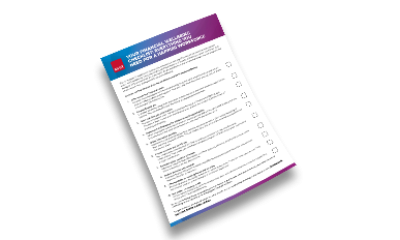Your workplace needs more WOW. Get ready for MHR's World of Work 2026
A productive, engaged, confident, and less stressed workforce is a reality.
Your employees have been exposed to significant changes in the economy which may have impacted their wellbeing. The importance of providing financial wellbeing has grown dramatically and is now a board-level conversation. That’s where Financial Wellbeing from MHR comes in.

Data silos? What data silos? Financial Wellbeing from MHR fully integrates with our HR platforms
Everything you need to know about financial wellbeing
FAQs
-
Across all of the organisations who have implemented Financial Wellbeing from MHR, we find that individuals use the flexible pay feature in different ways depending on their circumstances:
- Some choose to use flexible pay as a way to manage their budget on a weekly cycle, and will regularly draw down the full amount of pay available to them each week
- Some people use flexible pay as their everyday payment tool, for example instead of using a credit card or overdraft. Many people report that they find using flexible pay better and safer for their circumstances because the mechanical link between earnings and pay means they cannot inadvertently overspend
- With 14m people in the UK having £100 or less in savings, some will rely on the feature to cover unexpected expenses such as a car repair or replacing an appliance, which can be highly problematic if there’s no money saved up to cover it
- Roughly 35% of individuals who use flexible pay report that their hours vary so substantially that some months they can pay all their usual bills and some months they cannot. They use flexible pay to smooth out lumpy cash flow month to month
-
There is a £1.95 transaction fee for each withdraw.
-
Employers can change their pay cycles from weekly to monthly pay to reduce internal costs, free up time for the payroll team and reduce risk of admin errors. Employees are therefore enabled to manage their pay frequency when it suits their lifestyle.
-
No it is not. Flexible pay access gives employees access to a proportion of the money they’ve earned already that month, so they only ever access their own money. It is not a loan or salary advance.
-
MHR Financial Wellbeing is available to every employee, regardless of their credit rating or financial history. They’re also founded and built by charities, with a social charter at their core, meaning they remain accountable for building an app focused on providing fair financial services for all.
-
61% of users say their quality of life has improved because they have access to the app, while 67% say it makes them feel more in control of their financial future. Just under half (46%) have avoided a payday loan and 55% have reported an improved ability to plan their finances.
-
An independent report from Ipsos MORI found that the platform reduces attrition and improves retention by up to 16%.






















